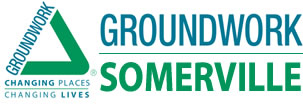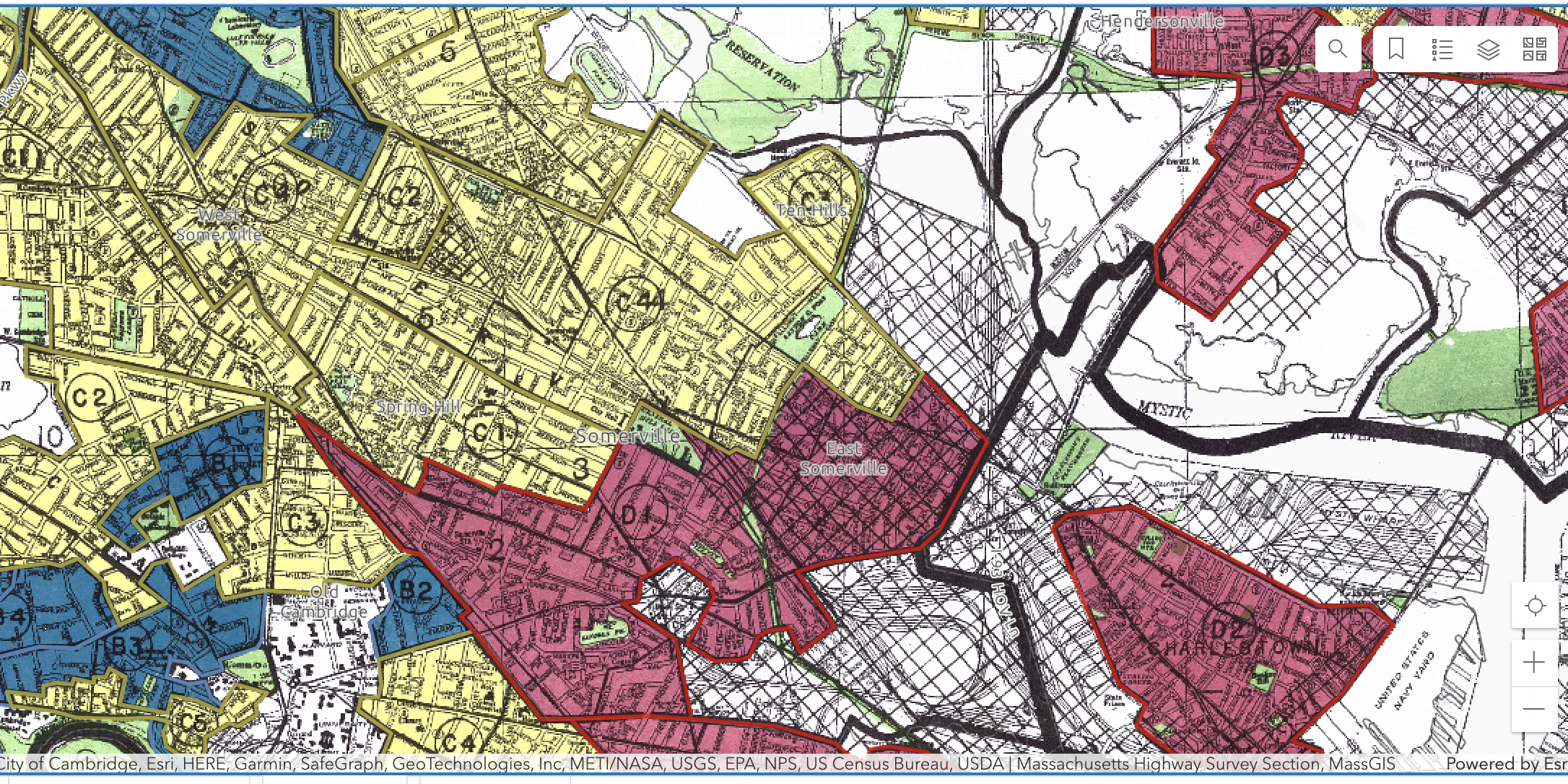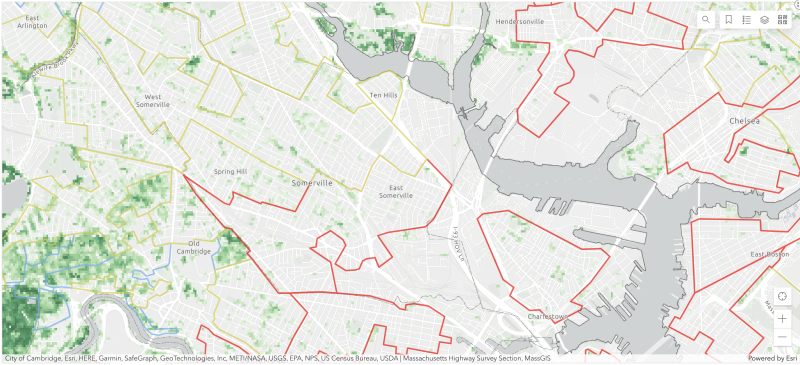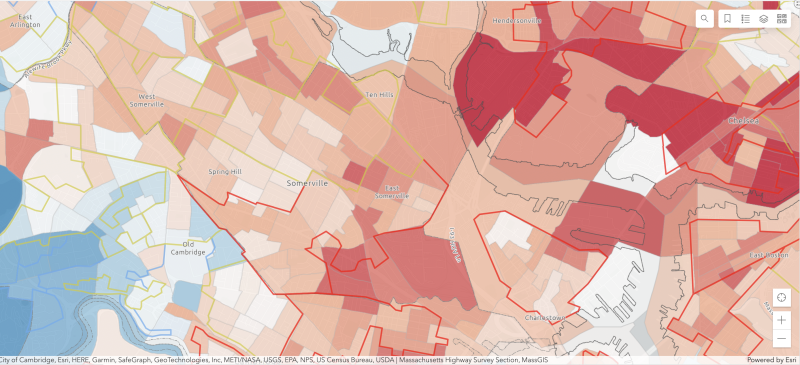Climate change is happening in every neighborhood, but its effects are not distributed evenly. In Somerville and the Greater Boston Area, historical practices of housing segregation and other discriminatory planning and land use decisions have made some communities more vulnerable to health, safety, and climate risks with fewer resources for advocacy and resilience. What can residents and local governments do to make sure their neighborhoods are safe and resilient from the effects of climate change?
Climate Safe Neighborhoods explores the relationship between past prejudiced housing and planning practices, such as redlining, and present day climate vulnerabilities/risks faced by our communities, such as extreme heat and flooding. From there, we build community-driven interventions that promote climate resilience. Our neighborhoods do not look the way they do by accident, and mitigation for climate change and related health and safety risks need to center and elevate communities that have been intentionally disenfranchised and disinvested in.
Examples of environmental factors that are unevenly distributed in Somerville’s neighborhoods of color and low income communities:
- Extreme heat/urban heat island effect
- Flood risk and flood impacts
- Concrete/impermeable surface cover

Blessing of the Bay Park in East Somerville is in a Environmental Justice community, and as such, has been systemically neglected by municipal decision-making. The Mystic River Watershed Association, a close partner of GWS, is currently working to make this vital waterfront resource a true benefit to its neighbors without contributing to gentrification. We plan to be involved with Community Engagement around making this park a true community resource!
- Low amounts of tree canopy
- Poor air quality from highways, transportation, big buildlings, and other infrastructure
Examples of potential projects that the Climate Safe Neighborhood program fueled by resident leaders could take on in partnership with other groups and the city:
- Improving or establishing green infrastructure (eg. parks, urban farming space, stormwater mitigation) in Environmental Justice communities
- Air quality monitoring and other citizen science projects that lead to government action
- Tree distribution and maintenance projects
- Change city climate change plans, zoning rules, funding distribution, urban forest laws, etc. to better prioritize communities of color and their resilience
- Anything that frontline community members think of and deem most important!
Resident Leadership Group
The resident leadership group is a central part of Climate Safe Neighborhoods: people who live in climate-vulnerable neighborhoods know best about their own communities and what needs to be done to redistribute resources justly! We aim to build resident power by compensating members to learn about climate justice issues, identify local projects, and make systemic change for health, economic, and community well-being!
It is composed of local residents (~7 members) who represent the community, centering individuals with lived experiences in environmental justice neighborhoods. It is dedicated to building a Somerville that is well-informed on climate challenges and solutions, and is empowered to advocate and shape an equitable redistribution of resources. The group will co-create with the broader community and Groundwork’s Green Team in all aspects of education, outreach, design, advocacy, and implementation.
The first round of the leadership group will last about 6 months starting around March 2024. Learn more at this Resident Leadership Group Description.
Community members of East Somerville and surrounding areas who might be interested should fill out this Interest Form before March 10, 2024! If you know someone who might be a good candidate, please put them in touch!
Groundwork Somerville has been building momentum for these efforts since late 2023 as part of Groundwork USA’s Climate Safe Neighborhoods (CSN) partnership, and we want your help! Other opportunities to get involved include volunteering for outreach to community members (think canvassing, tabling, flyering, etc.) and project implementation, interpretation into non-English languages, skill-sharing around projects, and much more. We need to organize as communities in order to prioritize and address our urgent needs and wellbeing!
Get involved in local climate justice!
If you would like to learn more, get involved with the climate justice work we’re doing, have people or organizations you think should be involved, or have ideas for how your neighborhood could be more equitably resilient, reach out to Sophie at sophie@groundworksomerville.org!
Make sure to sign up for our newsletter for updates!





